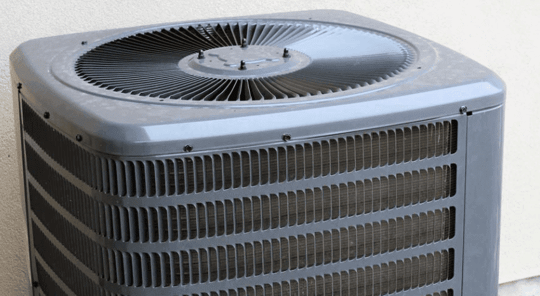When shopping for a new air conditioner for your North Carolina home, an important acronym you need to consider is SEER. The SEER rating measures a unit’s energy efficiency, which you’ll want to look at as you compare units. Many Ocean Isle Beach homeowners want to know if a 14 SEER rating is good. Our most recent blog, A+ Heating & Cooling – Electrical explains what SEER means, whether a 14 SEER rating is good, and what the numbers mean for homeowners.
What Is SEER?
SEER stands for Seasonal Energy Efficiency Ratio and is a measure used to show how efficiently an air conditioning system uses the electricity it consumes to generate cooling in the home. To find an air conditioner’s SEER system rating, the unit’s cooling output over a cooling season is divided by the unit’s total electrical consumption during the same period.
SEER Minimum Requirements
Since 2015, all newly manufactured and installed central air conditioners are required to be at or above a defined minimum SEER requirement. In southern states, including North Carolina, 14 SEER is the minimum allowable SEER rating for these units. In 2023, the mandated minimum SEER rating for new air conditioners installed in our area will increase to 15 SEER.
What Does "14 SEER" Mean? Is a 14 SEER Rating Good?
As of today, the lowest-rated air conditioner you can buy for your home is 14 SEER. When homeowners hear that minimum rating, they may question whether a 14 SEER rating is good considering it’s literally the lowest efficiency unit you’re allowed to buy. Just because 14 SEER units have the lowest rating allowable by law doesn’t mean you should worry, as many homeowners find a 14 SEER unit is just right for their home as well as their budget.
Chances are that your existing air conditioner isn’t anywhere near this level of energy efficiency. Older units made prior to 2015 were held to lower standards, so your air conditioner may not have offered this energy efficiency level when you first bought it. Plus, air conditioners lose efficiency as time goes on and they wear out – your older system’s efficiency is typically quite a bit lower than you thought when it comes time to replace it.
Bottom Line: Usually, a 14 SEER air conditioner can be thought of as a basic model, while a unit with a higher SEER has more bells and whistles. Is a 14 SEER rating good? Yes, it is, if you’re looking for a no-frills air conditioner that gets the job done.
What is the Highest SEER Rating for an Air Conditioner?
Currently, the highest SEER units available for residential central air conditioners are in the mid to high 20s. The higher an air conditioner’s SEER, the more energy-efficient the unit is. As the SEER rating increases, units consume less energy to do their jobs. Thus, higher SEER units are less expensive to operate than lower SEER units due to their higher efficiency.
Air conditioners with a higher SEER rating deliver great energy efficiency through the advanced technology found in these models. Many of the components in these units offer benefits beyond efficiency; they also create a simpler, more comfortable experience for the user.
How Does SEER Rating Affect the Cost of an Air Conditioner?
The cost of a new air conditioner is affected by the SEER rating, too. In general, prices increase as the SEER rating increase. Though you may pay more in upfront costs to buy an air conditioner at 16 SEER or 20 SEER vs. a 14 SEER unit, keep in mind that you’ll be paying less in energy costs throughout the unit’s service life. The energy savings generated by more energy-efficient air conditioners pay homeowners back for their higher purchase costs over a period of years.
Finding the Right SEER Air Conditioner
While SEER isn’t the only thing to consider when buying a new air conditioner, it is pretty important! A good SEER rating for many families is a balance of efficiency and cost within the buyer’s budget. Is a 14 SEER rating good? It may be for your home, or you may want something more. Either way, A+ Heating & Cooling – Electrical will help you find the best new unit that fits your needs and budget.
Contact us today to explore your equipment options and receive an estimate for new air conditioner installation.
